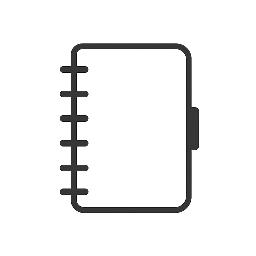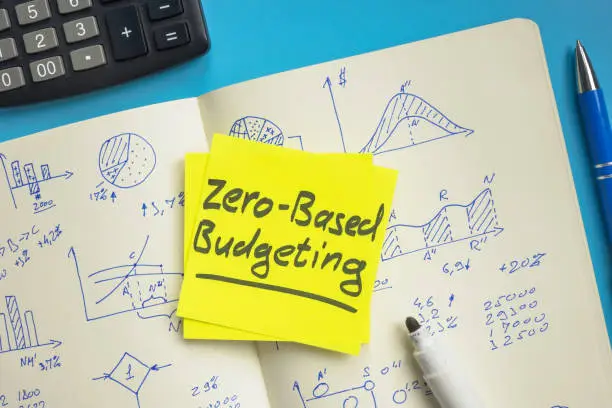Understanding the Basics of Zero-Based Budgeting (ZBB)
What Is Zero-Based Budgeting?
Zero-Based Budgeting (ZBB) is a method where you allocate every dollar of your income to a specific purpose—expenses, savings, debt payments, or investments—until there’s nothing left unassigned. The goal is simple: Income – Expenses = Zero. It doesn’t mean you have zero dollars in your account, it means every dollar is working for you.
How ZBB Differs from Traditional Budgeting
Traditional budgets often start with last month’s numbers and make adjustments. ZBB starts from scratch every month—you don’t assume anything. It requires you to justify every expense each cycle, not just roll it over.
How Zero-Based Budgeting Works
Income Minus Expenses Should Equal Zero
This approach ensures that every dollar is accounted for before the month begins. You know exactly what your money is doing, instead of wondering where it went.
Every Dollar Has a Job
Your paycheck isn’t just money in the bank—it’s a set of assignments. Whether it’s $500 to rent, $100 to savings, or $30 for takeout—you give each dollar a role.
The Pros of Zero-Based Budgeting
Total Control Over Every Dollar
With ZBB, you’re the boss. Nothing gets spent unless you approve it. It’s a financial microscope that shows where your money really goes.
Great for Debt Reduction
By allocating funds with precision, you can prioritize debt payments. ZBB can fast-track your debt payoff like few other methods can.
Helps Identify Spending Habits
You’ll quickly see patterns—like that weekly coffee run that adds up to $100 a month. It’s eye-opening and empowering.
The Cons of Zero-Based Budgeting
Time-Consuming to Maintain
Let’s be honest—it’s not the fastest method. It requires regular check-ins and adjustments. But the payoff? Worth it.
Can Be Overwhelming for Beginners
All the math and tracking can be a lot at first. But once you get the hang of it, it becomes second nature.
Who Should Consider Zero-Based Budgeting?
People Trying to Get Out of Debt
ZBB is one of the best methods if you’re focused on slaying debt. You’ll know exactly how much you can throw at your balances each month.
Households with Irregular Incomes
If you’re a freelancer, gig worker, or in sales, ZBB helps stabilize your finances by budgeting based on expected or average income.
Those Looking to Take Full Financial Control
If you’re tired of your money “just disappearing,” ZBB helps you take control—down to the penny.
Step-by-Step Guide to Creating a Zero-Based Budget
Step 1: Calculate Your Total Monthly Income
Include salary, side hustles, child support, benefits—every dollar that comes in.
Step 2: List All Your Expenses
Rent, groceries, gas, subscriptions, date nights—write it all down.
Step 3: Assign Every Dollar a Job
This is where ZBB shines. Plan every expense BEFORE the month starts. Don’t forget savings or debt payoff!
Step 4: Adjust and Balance to Zero
Tweak the numbers until Income – Expenses = $0. Not a penny more, not a penny less.
Tools and Apps That Make ZBB Easier
YNAB (You Need A Budget)
Built on ZBB principles, YNAB is perfect for hands-on budgeters. It’s worth every penny.
EveryDollar
Created by Dave Ramsey’s team, it’s user-friendly and ideal for beginners.
Mint (with manual tweaks)
While not purely ZBB, you can adapt Mint to assign categories and track spending manually.
Zero-Based Budgeting for Couples and Families
Joint Budgeting with Transparency
ZBB encourages open money talks. Sit down together and agree on where every dollar should go.
Teaching Kids About Money Using ZBB
Use it to teach children how to allocate allowance or gift money—a great intro to real-world money management.
ZBB vs. Other Budgeting Methods
Envelope System
Similar concept but uses cash in physical envelopes. Great for spending categories like groceries or entertainment.
50/30/20 Rule
A simpler breakdown—50% needs, 30% wants, 20% savings. ZBB is more detailed but less flexible.
Pay-Yourself-First Method
You prioritize savings first. You can actually combine this with ZBB by budgeting for savings upfront.
Mistakes to Avoid When Starting with ZBB
Forgetting Irregular Expenses
Annual subscriptions, car repairs, or birthdays? Don’t let them sneak up on you. Plan for them in advance.
Not Tracking Actual Spending
Creating the budget is half the work. The other half? Tracking your spending against the plan.
Adjusting Your ZBB Monthly
Life Happens—Adjust Accordingly
Don’t be rigid. If something unexpected comes up, reassign dollars and re-balance to zero.
Reviewing and Reflecting Each Month
Take 10 minutes to ask: What worked? What didn’t? Where can we improve?
Success Stories Using Zero-Based Budgeting
Real People, Real Results
Thousands of people have gone from paycheck-to-paycheck to fully funded emergency funds using ZBB.
From Paycheck-to-Paycheck to Savings Success
Check out forums like Reddit’s r/personalfinance or stories on You Need A Budget’s blog for real inspiration.
Is Zero-Based Budgeting Right for You?
Key Questions to Ask Yourself
- Do I feel in control of my money?
- Do I know where every dollar goes?
- Am I meeting my financial goals?
If you answered “no” to any of those—ZBB might be your new best friend.
When to Switch or Combine Budgeting Methods
Some people start with ZBB and then move to something simpler later. That’s okay! It’s not about the method—it’s about what works for you.
Final Tips to Master Zero-Based Budgeting
Be Consistent, Not Perfect
You’ll mess up. You’ll overspend. It’s part of the process. The win is in the discipline.
Celebrate Small Wins
Paid off a credit card? Saved an emergency fund? Treat yourself (within the budget of course).
Conclusion
Zero-Based Budgeting is a powerful tool for taking full command of your finances. It’s not the easiest method, but it might be the most effective if you’re serious about financial freedom. Whether you’re paying off debt, building savings, or just tired of feeling broke—ZBB gives your money purpose.
It’s not about having more money—it’s about using the money you have with intention.
FAQs About Zero-Based Budgeting
1. Do I need to hit zero exactly every month?
Yes, but remember—zero means every dollar is assigned, not that your bank account is empty.
2. Can I use ZBB with variable income?
Absolutely. Just base your budget on your lowest expected monthly income and adjust if you earn more.
3. What if I overspend in one category?
Reassign funds from another category and rebalance the budget. Flexibility is key.
4. Is ZBB good for beginners?
It can be—but it takes effort. Start small and use apps like EveryDollar or YNAB to help.
5. How long does it take to get the hang of ZBB?
Give it at least three months. By then, it’ll feel much more natural—and the results will show.


Leave a Reply